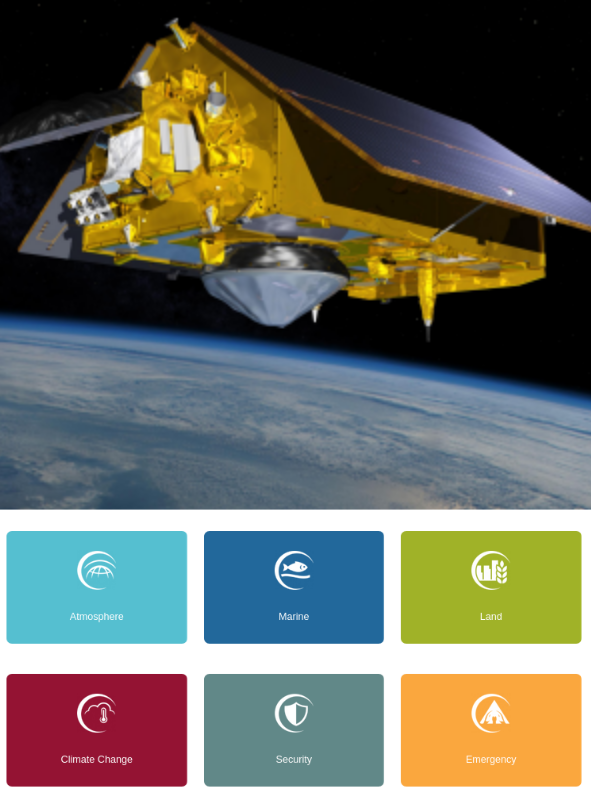We honor this occasion releasing a new Academy data science course that provides an introduction to the Copernicus Satellite Data Ecosystem. Copernicus is the name of an Earth observation system of the European Union's Space programme. Its objective is to look at our planet and its environment, in particular serving the needs of European citizens. Copernicus offers integrated information services (data) that draw both from Satellite based Earth Observations and In-Situ (non-space) data collection.

This course should be a useful first reading for anybody who wants to get involved in using Copernicus data but has no prior experience.
In the first step we go over a high-level overview of the Copernicus program. This should serve as a first orientation for anybody interested to work with Copernicus data but is not yet sure what is available.
In the second step we build a high level catalog of the available data resources. Copernicus is a large program, involving many institutions, diverse satellites and instruments, providing original and processed data, including additional sources of ancillary data and an ever evolving set of tools providing data access. This section aims to organize all these to some degree.
In the third step and final step of this introduction into the Copernicus programme we discuss some tools that relevant for working with Copernicus data resources. Detailed work with Copernicus data requires using diverse specialized tools but there are ongoing efforts to systematize and standardize them with various toolboxes, platforms and API's. Here we only scratch the surface of the relevant technologies to get you started!
Enjoy, and as always keep us posted with any feedback, ideas or suggestions about how to improve the Open Risk Academy.